

Fraudster Arafat Ikumu Omar who is charged with being in possession of over half a million fake US dollars has told the court that he intends...
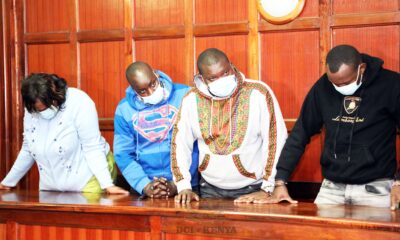

A university graduate and a land broker were today charged with stealing Sh2.8 million from a dead man’s bank accounts. Eutycus Muguna Mutembei and Ayugu Eugene Shivachi were...


In yet another expected and a normal occasion once a prominent person dies in Kenya, a 65-year-old Margaret Kerubo Chweya has come out to claim she...


You can now dress like world champion Eliud Kipchoge himself thanks to the new capsule collection by Nike. In colours inspired by his Kenyan roots, the...
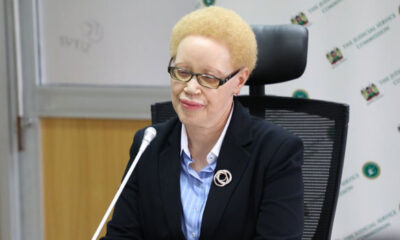

Northwestern Pritzker School of Law’s Center for International Human Rights (CIHR) will award its sixth Global Jurist of the Year Award to Justice Mumbi Ngugi, Judge of the...


DCI officers have arrested Cyrus Kinyanjui 32 and his accomplice Alexander Kuria 30, in connection with a robbery where a Chinese national lost Ksh 15M. According...


There is an intricate web of relationships stretching between City Hall and Dandora dumpsite, connecting politicians, private waste companies and gangs. In interviews in January 2020,...


Around the world, waste management has proven to be a sector vulnerable to organized crime and corruption. The Dandora dumpsite – the only designated dump for...
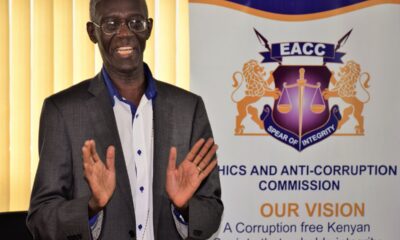

The Ethics and Anti-Corruption Commission (EACC) now wants the military subjected to audit to enhance accountability. EACC Chairperson Dr Eliud Wabukala says failure to audit the...


Senator Mohamed Yusuf Haji died on Sunday night while receiving treatment at the Aga Khan Hospital in Nairobi County and on Monday the 80-year-old Senator was buried...


New documentary evidence from official French archives revealed that during the 1994 genocide in Rwanda, Paris allowed the perpetrators to flee while ignoring a request by...
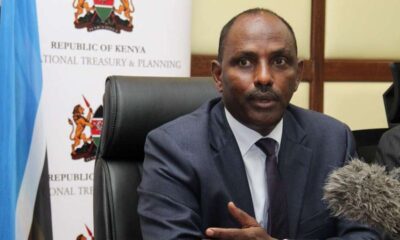

Summary: The IMF team and the Kenyan authorities reached staff-level agreement on a 38-month program to help the next phase of the country’s COVID-19 response and...
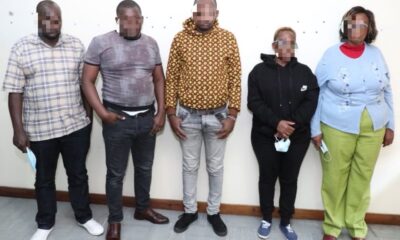

Ever heard of a dead person literally stealing from another dead victim? That was the case with the Rev Peter Kania Kariuki, the PCEA Secretary-General who...
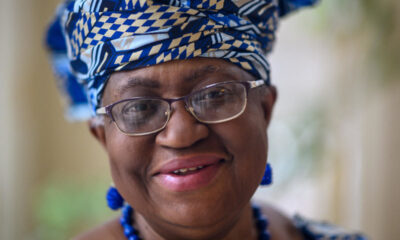

Okonjo-Iweala, 66, was appointed director-general of the World Trade Organization by representatives of the 164 member countries, according to a statement from the body. She said...
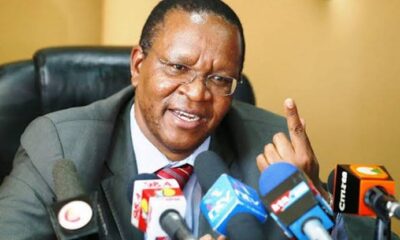

Interior Principal Secretary Eng. Dr Karanja Kibicho has urged the vote-rich Mt Kenya community to read and understand fully the contents of the BBI documents to...


Residents of Kirimon village in Laikipia have called for the arrest and prosecution of a rancher who is alleged to have destroyed electricity posts on claims...


Rwanda has started its first phase of vaccination against Covid-19 with the limited 1,000 doses of the Moderna vaccine administered to high-risk groups, including frontline workers....


The 64-year-old father of rapper Nicki Minaj has died after being struck by a hit-and-run driver in New York, police said. Robert Maraj was walking along...


ODM leader Raila Odinga has supported calls by President Uhuru Kenyatta to the effect that dissatisfied members of his administration should quit. This sentiment has largely...


On 8th February, Safaricom PLC gave a Customer Notice ‘We are permanently increasing Home Fibre speeds effective 1st March 2021.’ The announcement meant that Home Fibre customers...